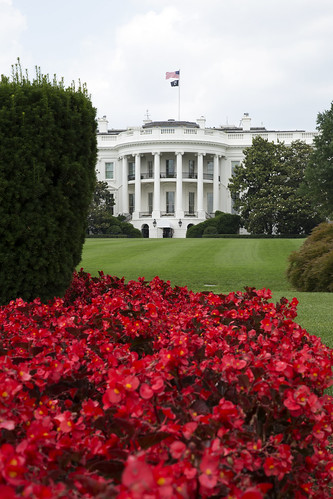Is the White House a hostile working environment? The chief of staff, Reince Priebus, might think so. News reports describe the new White House communications director, Anthony Scaramucci, calling Priebus a “paranoid schizophrenic,” among much more colorful language.
For a fun (we think) Friday lesson in employment law, let’s pretend the White House sits in Minnesota, and is subject to Minnesota state laws, as well as federal laws. And let’s pretend the White House is not the home of the President, but a company that manufactures cheap bronzers. And we’ll say an employee named Reese is frequently called names by a guy named Tony.
Can Reese sue the White House for creating a hostile work environment? The short answer is Reese probably does not have a good case. Here’s the long answer that explains why.
First, hostile work environment laws are rooted in discrimination laws. That means the employee must be harassed based on a “protected class,” like age, race, gender, sexual orientation, gender identity, or disability. (FYI: sexual orientation and gender identity are protected classes under Minnesota statutes, but not federal statutes.)
Reese, a 45-year-old, straight white man, might be protected if the harassment is based on his age. He also might be protected if he has a disability, or perceived one, and the harassment alludes to it, like calling him a “paranoid schizophrenic.” However, assuming the harassment is not based on one of those protected classes and is more generalized bullying, Reese might have a hard time arguing he has a legal claim.
Next, the harassment must be “severe or pervasive.” That’s a high burden. Reese would need to show the harassment was so awful it altered the conditions of his job. Lawyers representing employers like to quote a Supreme Court case that said federal civil rights laws are “not a general civility code.”
Finally, Reese would need to show he notified a boss, and the boss did nothing to stop the harassment. For this imaginary scenario, let’s pretend the boss was not only aware of the harassment, but also encouraged it (and was quite notorious for his own bullying behavior). In that case, Reese would satisfy this step of the analysis.
The long and short of this is when you hear the words, “hostile work environment,” you might think laws forbid workplace bullying. However, workplace bullying is usually only illegal when it’s rooted in discrimination. Nevertheless, a lawyer might be able to help find other legal or practical solutions to stop unacceptable workplace behavior.


